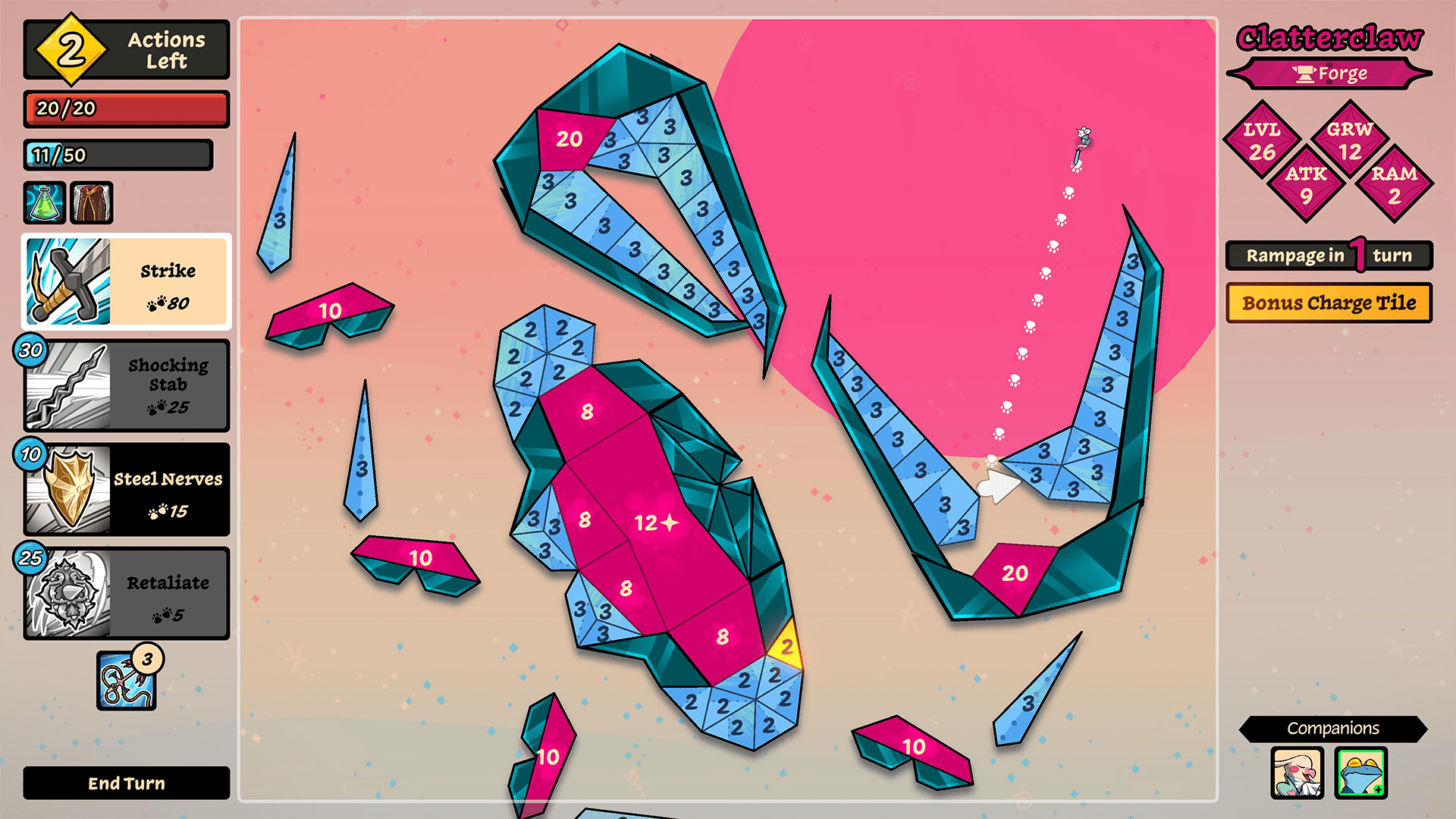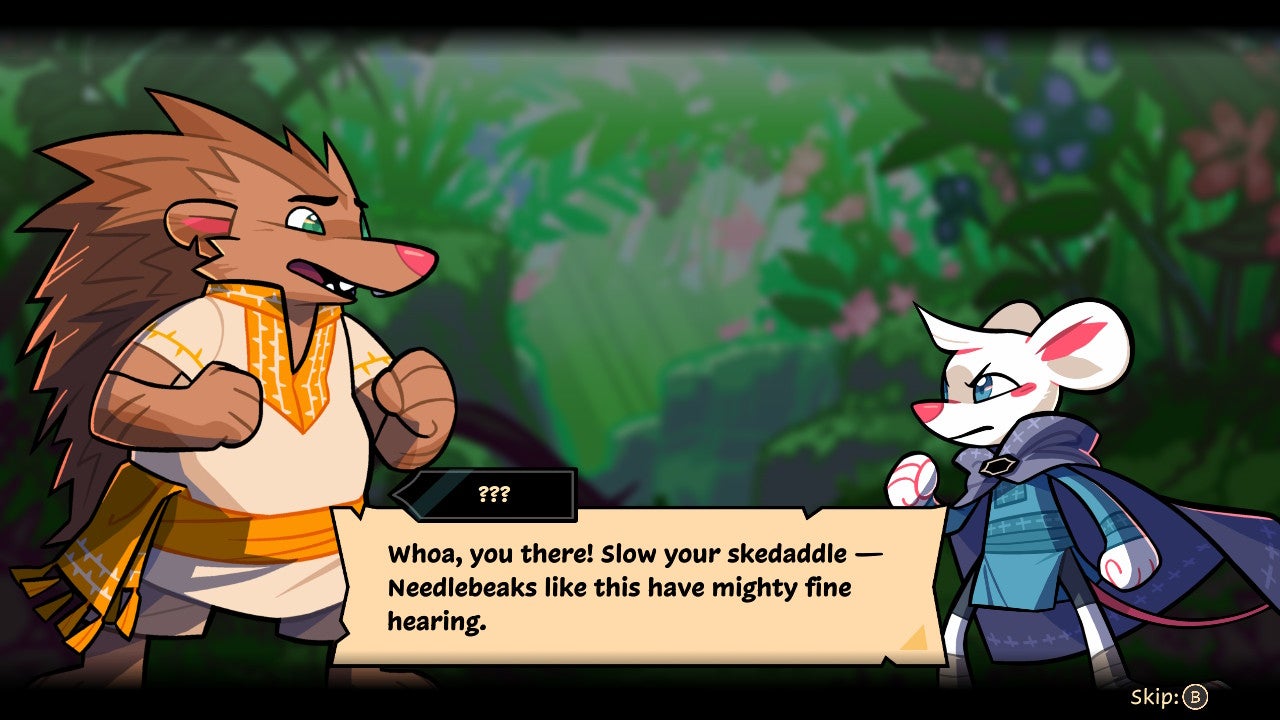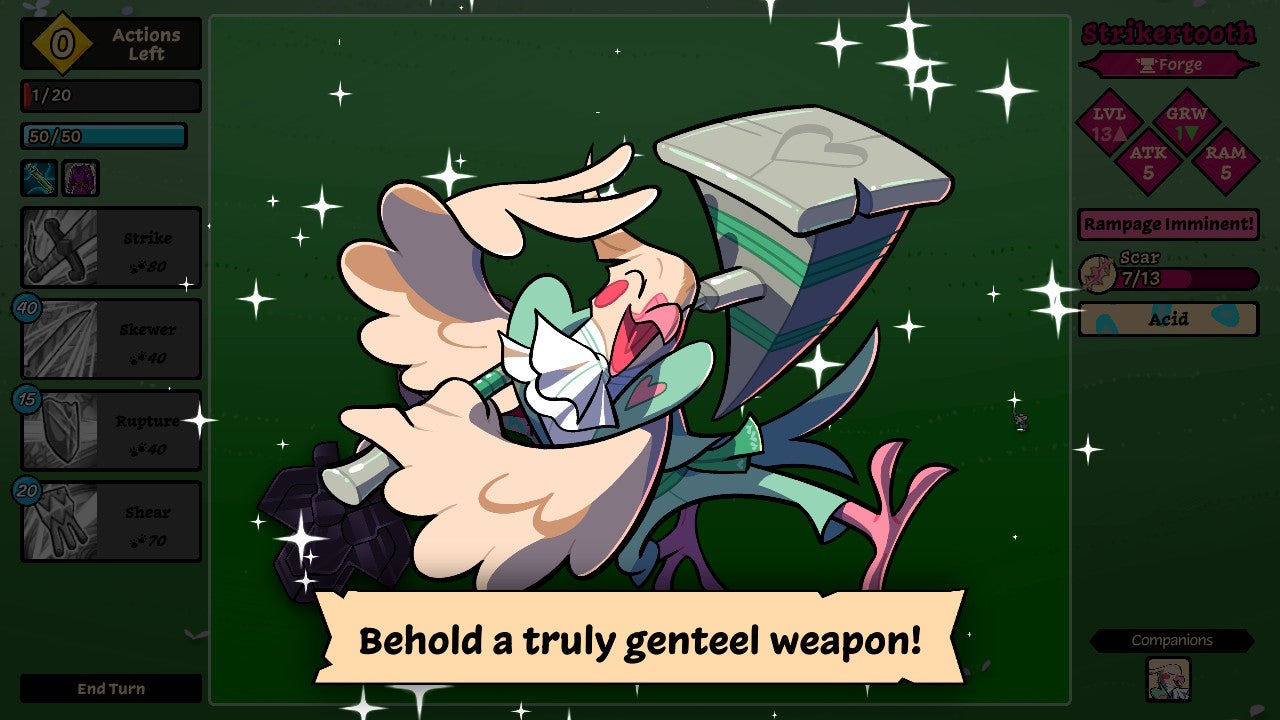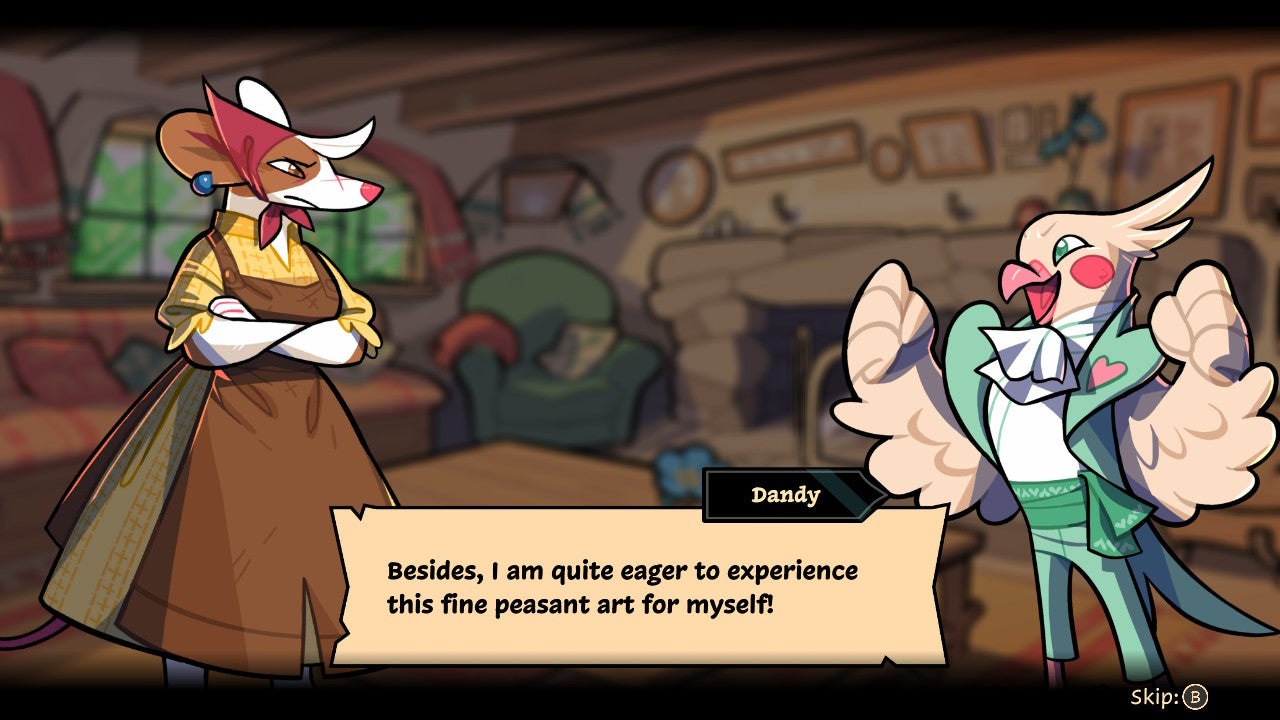You take control of Skipper, a small mouse with a big heart. As beasts start to descend on various critter settlements, Skip bravely grabs their grandmother’s sword and decides to face the threat head-on. Because the beasts are quite large and Skip is anything but, you actually guide them like a pinball. The monsters look like they’re made of crystal shards, each of its parts imbued with a big, red core. Skip has to destroy the shards protecting the core and then hit the core the required number of times to destroy a beast’s limb. Combat is turn-based, in each round you pick an attack, before roughly planning a course for Skip to shoot along like a tiny, mouse-shaped pinball. The act of plotting a course is a little fiddly, at least on Switch, but if there is one thing I understood very soon, it’s that even with even the most careful preparation, an element of luck presides over the game at all times. There are comparisons to be made to Peggle, which itself is basically a fancier version of pinball - you plot a course for your ball and then let physics do the rest. But to reduce Beast Breaker to this similarity would do it a massive disservice. Don’t get me wrong, I’ve enjoyed Peggle immensely about a decade ago, but like all casual games of the time, Peggle was geared towards producing the endorphin rush that would keep you playing - the impact animations, the moment of anticipation before your ball hit its final target, the explosions of colour and the triumphant chorus of “Freude Schöner Götterfunken” after each successful round. Beast Breaker is different - it’s fast and slow in equal measure, it’s the marriage of careful planning and sheer dumb luck, and each battle carries the potential of loss. While there isn’t much of an impact for most weapons, you don’t just shoot Skipper off until you inevitably win - you also have to evade monster attacks and make sure you destroy at least a limb, if not a monster’s main core, before they start rampaging and the battle comes to an end. Vodeo Games, newly founded by Asher Vollmer, designer of games such as Threes and Guidlings, want to make “cosy-crunchy” games - games you can lose yourself in but that can take a while to master, which is a brilliant way to describe Beast Breaker. Even after several hours with the game, I wouldn’t dare to claim any kind of mastery. While the setup is deceptively simple, there are many elements that make or break each battle, principally the enormous amount of available weapons. Skipper responds to calls for help from different settlements, and as they sees ways for their fellow critters to help themselves as part of the wider narrative, they make different companions who teach them their weapons, such as the bow and arrow or the mighty hammer. Each weapon set opens up a distinctly different style of play - the weight of the hammer slows Skipper down, which leads to them travelling shorter distances, but hitting harder. All weapons also have charging mechanisms that allow you to use more powerful attacks - or even use the weapon at all - before you swing the hammer for example, you have to gain momentum. There are so many systems at play, and none of them require much of an explanation. Through its many interlocking systems, Beast Breaker is a wonderfully complex game that’s easy to understand, and there is nothing simple or casual about it mostly because you get used to failure much more easily than you ever get used to winning. That may be frustrating to some players - no matter how carefully you try to plan your moves, sometimes Skip just bounces exactly where you don’t want them, and you can’t get them back on track before time runs out. But Beast Breaker is never punishing. When you lose, it is suggested that the settlement’s population got out ok or that the beast fled in a rage to regroup - you’ve done your best and you can try again, now perhaps with a different weapon, making the entire encounter feel completely different once more. Also, it doesn’t hurt that Beast Breaker is gorgeous. The battle sections may look rather simple, visually speaking, but the narrative portions, told like a visual novel, are gorgeous. I love the visual design of every character, and not only that, the writing is top notch, too. Every character has a strong personality that is quickly established with the first times you hear (and see) them talk, and while most of the story is concerned with you saving settlements, there are a few nice touches in there besides - storylines personal to your companions, and overarching questions such as Skip being challenged on what it means to be a big hero in a small, small body. I’m quite simply in awe of everything Vodeo Games managed to pack into one game, one that was developed into a pretty short time span, too - the studio plans to release a new game every year, and I for one can’t wait.




